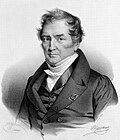Timeline of peptic ulcer disease and Helicobacter pylori
Timeline of Peptic Ulcer Disease and Helicobacter pylori
The history of peptic ulcer disease (PUD) and its association with Helicobacter pylori (H. pylori) spans over centuries, with significant advancements in understanding and treatment occurring in the late 20th century. This article outlines the key events and discoveries that have shaped the current understanding and management of peptic ulcer disease and its relationship with H. pylori.
19th Century
- 1854: John Goodsir, a Scottish anatomist, provides one of the first descriptions of a bacteria in the stomach, which many years later would be recognized as related to H. pylori.
20th Century
- 1905: Walter Alvarez, an American physician, proposes that ulcers are caused by stress, a theory that dominated the understanding of PUD for much of the 20th century.
- 1954: Conrad Palmer introduces the term "peptic ulcer" and distinguishes between gastric and duodenal ulcers.
- 1982: Barry Marshall and Robin Warren, two Australian scientists, discover Helicobacter pylori and its association with peptic ulcer disease, revolutionizing the understanding of the condition. This discovery eventually leads to the Nobel Prize in Physiology or Medicine in 2005.
- 1987: The first successful treatment of PUD with antibiotics targeting H. pylori is reported, confirming the bacterial cause of the disease and leading to a paradigm shift in treatment from surgical to antibiotic therapy.
21st Century
- 2000-2010: Numerous studies confirm the association between H. pylori infection and the development of gastric cancer, leading to the classification of H. pylori as a carcinogen by the World Health Organization.
- 2014: The American College of Gastroenterology updates its guidelines to recommend H. pylori eradication therapy for patients with confirmed infection, highlighting the importance of this approach in preventing peptic ulcer disease and its complications.
Current Understanding and Treatment
Today, it is well understood that H. pylori infection is the primary cause of peptic ulcer disease in the majority of cases. The standard of care involves testing for H. pylori in patients with gastric and duodenal ulcers and, if positive, providing a course of antibiotic therapy combined with proton pump inhibitors to eradicate the infection and promote healing of the ulcer. This approach has significantly reduced the recurrence rate of ulcers and the need for surgical intervention.
Future Directions
Research continues into the development of more effective treatments for H. pylori infection, including vaccines and novel antibiotics, as well as into understanding the mechanisms by which H. pylori causes disease. The goal is to further reduce the global burden of peptic ulcer disease and its complications, including gastric cancer.
This article is a gastroenterology stub. You can help WikiMD by expanding it!
Transform your life with W8MD's budget GLP-1 injections from $125.
W8MD offers a medical weight loss program to lose weight in Philadelphia. Our physician-supervised medical weight loss provides:
- Most insurances accepted or discounted self-pay rates. We will obtain insurance prior authorizations if needed.
- Generic GLP1 weight loss injections from $125 for the starting dose.
- Also offer prescription weight loss medications including Phentermine, Qsymia, Diethylpropion, Contrave etc.
NYC weight loss doctor appointments
Start your NYC weight loss journey today at our NYC medical weight loss and Philadelphia medical weight loss clinics.
- Call 718-946-5500 to lose weight in NYC or for medical weight loss in Philadelphia 215-676-2334.
- Tags:NYC medical weight loss, Philadelphia lose weight Zepbound NYC, Budget GLP1 weight loss injections, Wegovy Philadelphia, Wegovy NYC, Philadelphia medical weight loss, Brookly weight loss and Wegovy NYC
|
WikiMD's Wellness Encyclopedia |
| Let Food Be Thy Medicine Medicine Thy Food - Hippocrates |
Medical Disclaimer: WikiMD is not a substitute for professional medical advice. The information on WikiMD is provided as an information resource only, may be incorrect, outdated or misleading, and is not to be used or relied on for any diagnostic or treatment purposes. Please consult your health care provider before making any healthcare decisions or for guidance about a specific medical condition. WikiMD expressly disclaims responsibility, and shall have no liability, for any damages, loss, injury, or liability whatsoever suffered as a result of your reliance on the information contained in this site. By visiting this site you agree to the foregoing terms and conditions, which may from time to time be changed or supplemented by WikiMD. If you do not agree to the foregoing terms and conditions, you should not enter or use this site. See full disclaimer.
Credits:Most images are courtesy of Wikimedia commons, and templates, categories Wikipedia, licensed under CC BY SA or similar.
Contributors: Prab R. Tumpati, MD












